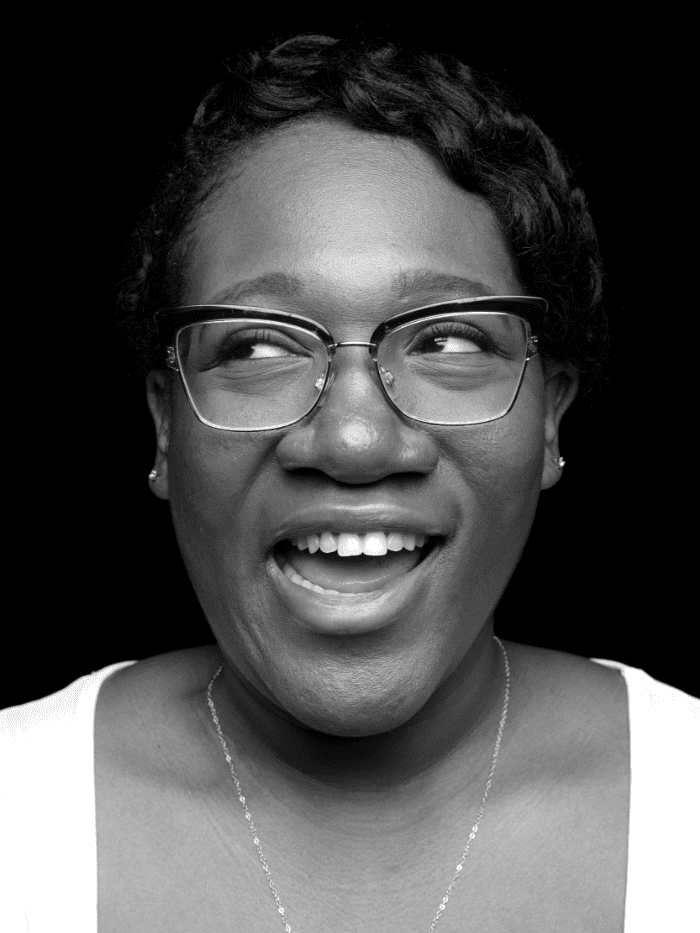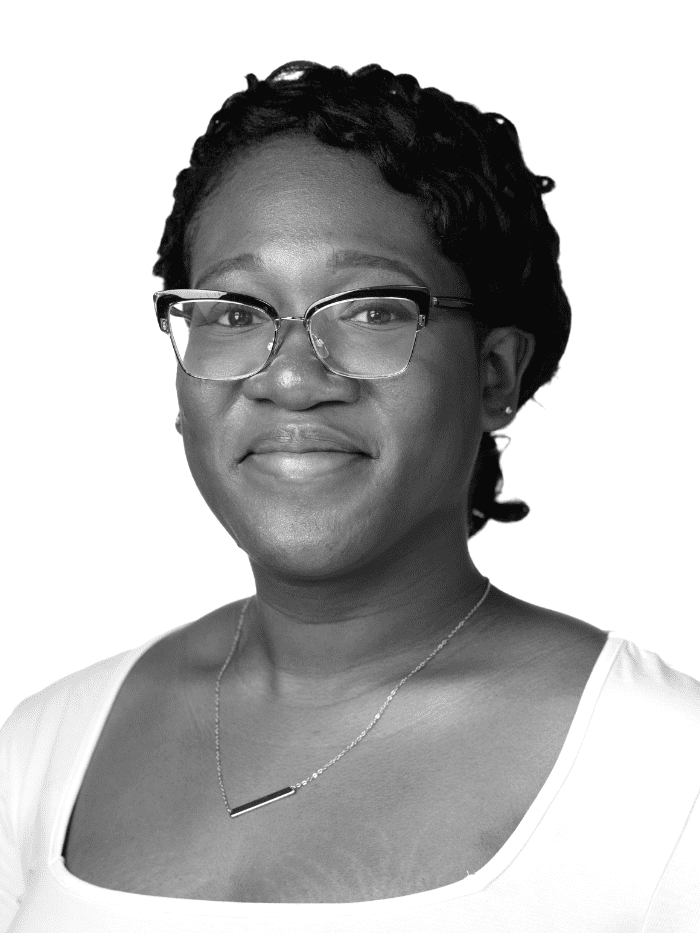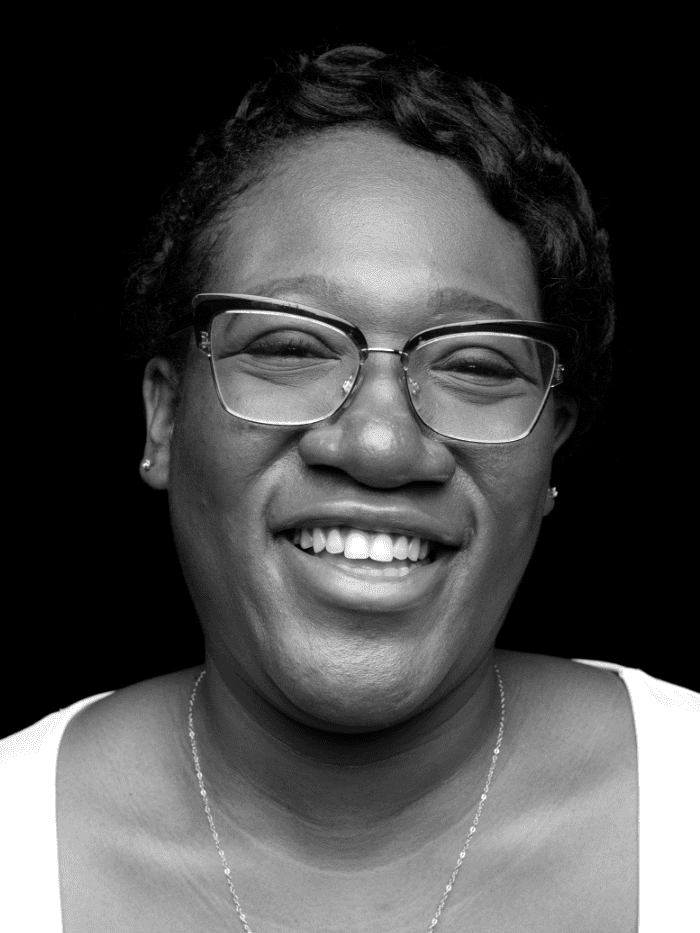Now she’s in a hybrid human resources role, supporting employees at DH and at a sister agency, Marketing for Change. For her, that support includes an emphasis on mental health and creating inclusive environments.
“I really believe in being a disruptive HR professional,” Porscha says. “That’s how change happens.”
Porscha’s take on:
Supporting employees’ mental health.
Supporting employees as whole people includes supporting their mental health. That means providing resources, such as access to therapy or mental-wellness days off work, as well as normalizing mental health conversations and care. Among other reasons, Porscha says, mental health affects productivity. “If you’re going to be in the business of people, you have to understand people bring their whole selves to work,” she says. “Absolutely, it is the responsibilty of the employer to support good mental health.” That also includes addressing systemic workplace issues that contribute to mental health problems, she says. Burnout, for example, can result from too-heavy workloads or too-small workforces. It leaves employees exhausted, disengaged, tired, lonely, unmotivated – to the point where their performance suffers. “The prescription is self-care. It is true time away,” Porscha says. “It’s not as simple as ‘Take a couple of days off,’ because the worry then is ‘Well, who is doing my work?’”Authenticity at work.
There a balance between creating space where employees can be their authentic selves – and ensuring that one person’s authentic self doesn’t offend or harm someone else’s authentic self: “You can be your happiest self – as long as you don’t impinge on others’ happiness. That’s what so trippy about work.” Related, she also learned about the role of code-switching at work – when you change your dialect when you’re talking, for example, depending on whom you’re talking with. She already knew about code-switching from a personal viewpoint: “I talk more articulately at work, but at home it’s more ebonics and slang.” Code-switching can be appropriate. And it can be harmful.PORSHA SAYS
I want to talk to my Black family differently from how I might talk to tech colleagues. So you can be authentic and doing code-switching at the same time. How you know it’s detrimental is when you come home and you’re exhausted every day.
“I code-switch. But I’m authentic always. I’m never not myself.”
Building real relationships online.
Porscha lives and works in Austin, Texas. While she visits DH’s Spokane office occasionally, she mostly works online. “The pandemic highlighted that in HR you really can do your job remotely,” Porscha says. “You have to use the tools you have to connect – making the most of a Zoom conversation, reaching out unsolicited on Slack. “For me what’s really important is being able to build relationships in this context, in this space. You can do it masterfully if you’re intentional and authentic.”Education
Master of science, industrial and organizational psychology, Baker College
Bachelor of arts, psychology, Tiffin University




